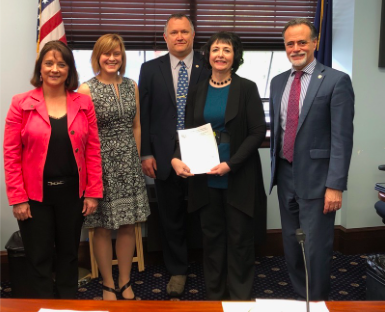An aspiring journalist from Connecticut, Walter Eli Clark became the 7th governor of the District of Alaska on May 20, 1909.
He served in the role of Alaska’s last district governor until 1912, when Alaska became a territory. Then, he was the first governor of the territory until he left office in May of 1913.
Born just four years after the Civil War ended, he was a Republican during a time when Americans associated the party with the freeing of the slaves and the cause of the Union against the seceding South.
Clark was born in Ashford, Conn. to a farming family. Ashford was known then as the hometown of the first Union general to die in the Civil War, and Clark would have been schooled in the history of that war, as well as the Revolutionary War, which was also prominent in the community’s memory. George Washington had come through there, and likely spent the night.
Clark attended the Connecticut State Normal School, and became a school teacher as a teenager, as was common in those days. By age 19, he was the principle of the Manchester, Conn., elementary schools.
He continued his education at Williston Seminary and Wesleyan University, and earned bachelor’s degree in philosophy. Then, he took up a career in journalism, reporting for the Hartford Post in Hartford, Conn., the Washington Times, in Washington, D.C., the Toronto Globe and the Seattle Post-Intelligencer. During a pause between jobs, he traveled to Alaska as a prospector, and although he found no gold, President William Howard Taft thought he was enough of an expert to be appointed the governor of the District.
Clark, the New York Times wrote on May 19, 1909, was a man “unusually well-informed on Alaskan affairs.”
And while some Alaska newspapers groused that he was a carpetbagger, Clark was instrumental in resolving some political battles that stood in the way of Alaska becoming a state.
In January of 1913, the newly formed Alaska Territorial Legislature had unanimously voted to grant women full suffrage, the right to vote. It was a full seven years before that happened on the national level, and it occurred in Alaska without any real organized effort on the part of women, except for Cornelia Hatcher, who organized the petition and took it to the Legislature for their first territorial session. Clark signed that bill into law.
But he did not care for politics, and in 1913 submitted his letter of resignation to then-President Woodrow Wilson. Clark left the job on May 21, 1913, having served four years in office.
Clark moved to Charleston, West Virginia, and purchased the Charleston Daily Mail and continued his career in newspapers. He died Feb. 4, 1950 at the age of 81, and is buried in Charleston.
It is the 110th anniversary of Clark becoming governor of the District of Alaska, and the 106th anniversary of his departing office, making way for John Strong, the second governor of the Territory.







